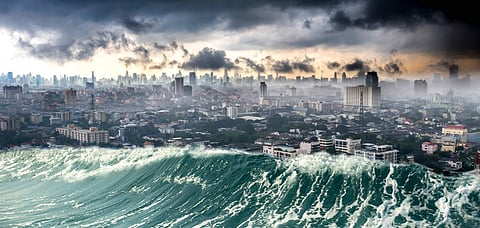
- Destinations
- Experiences
- Stay
- What's new
- Celebrating People
- Responsible Tourism
- CampaignsCampaigns
- SubscribeSubscribe
- Buy Now

It should come as no great revelation that planet Earth is pushing back against several years of abuse and unsustainable lifestyles. The world&rsquos oceans are steadily getting warmer as an upshot of melting of ice caps and glaciers and becoming more acidic at an alarming rate. &ldquoThe open sea, the Arctic, the Antarctic and the high mountains may seem far away to many people,&rdquo Hoesung Lee, Chair of the IPCC, says, &ldquoBut we depend on them and are influenced by them directly and indirectly in many ways&ndashfor weather and climate, for food and water, for energy, trade, transport, recreation and tourism, for health and wellbeing, for culture and identity.&rdquo
The United Nations Intergovernmental Panel on Climate Change (IPCC) cautions that the far-reaching consequences of global warming can already be felt and are only set to get worse, posing an existential threat to billions (first and foremost to the 1.4 billion people residing in coastal areas). While the real damage has already been dealt and is being dealt on a daily basis, the only stopgap is to limit the temperature rise to 2°C. The report further reads that we can expect a rise of about three feet in our sea levels, what are the repercussions I hear you ask, this will start a pinball effect wherein the ocean&rsquos currents will become weaker and in turn this will result in lesser snow in the mountains and so on and so forth until there are catastrophic disasters.
Such is the threat, the report stipulates extreme sea-level events that arose once in a century in the past will become annual events by mid-century in several regions. This poses a serious peril to small islands, low-lying cities and regions. Michael Oppenheimer, professor of geosciences and international affairs at Princeton University said, "The oceans and the icy parts of the world are in big trouble and that means we're all in big trouble too."
Crucially, what we all need to understand is that this chain of calamitous occurrences will not only hurt 71% of the world that are our oceans or for that matter the 10% that lie caked in snow and ice but every single thing around us By that we mean - the people, the animals, the plants, infrastructure, economies &ndash in a nutshell, life as we know it.
With no signs of climate change letting up, we need to act now, in whatever individual capacity we can, or forever live with the consequences of our ghastly actions.
